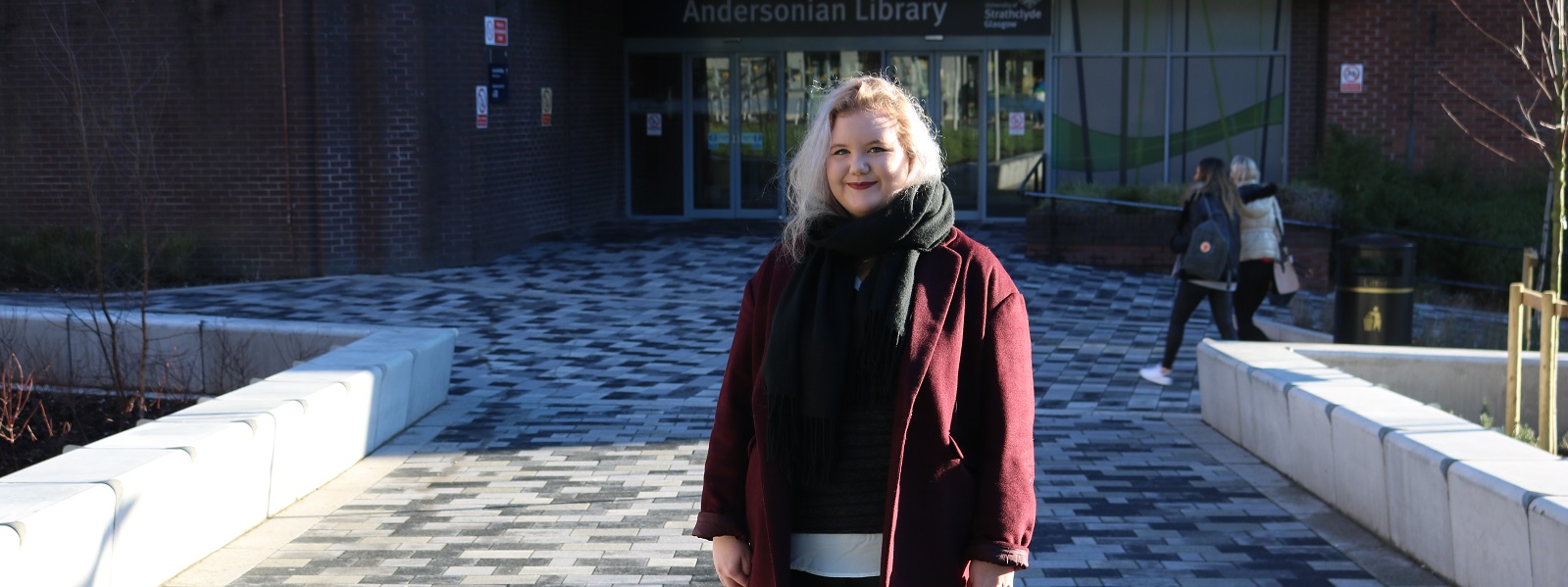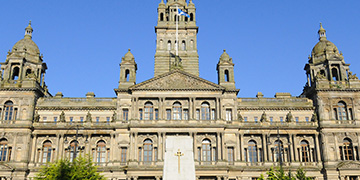Tell us a bit about your background…
I grew up in a city called Trondheim in Norway before I moved just outside of the city. That is where my schooling began, in Orkganger. In Norway we can choose how we structure our education, by that I mean you can choose to work or study in your final years at school. I went down the study route and this covered psychology, politics and sociology. It was really fun and interesting and I was very active in local politics as well. I was the vice president of a local political party which helped in getting to know those at other schools too. I used this information to strengthen my personal statement.
What attracted you to the University of Strathclyde?
I chose Strathclyde because they offer a bespoke Bacholor of Arts honours programme which fit well with my study needs. What makes this programme different from any Undergraduate programme in Norway is that you can explore a combination of subjects that complement each other. This allowed me to guide my studies in the direction that I wanted. When I first applied to the BA, I choose to study journalism and creative writing and English however took politics and international relations as a third subject. I have a real passion for politics and international relations and choose to continue my studies in this subject along with English. For me I got a sense that other Universities within the UK seemed very rigid however the culture at Strathclyde and within Scotland was very welcoming and chilled. It can take some time to get used to the culture but the Scottish people are very friendly. I find you can be quite open and honest.
What made you want to study English, politics and international relations?
I chose politics as I had a brilliant teacher in high school – that inspired me to choose the subject. The teaching environment was very interactive as there were only 8 people in my class. Doing politics and English opens up a lot of great job prospects for me. The staff at the university are really talented and inspirational.
What has been the highlight of your time at Strathclyde so far?
I have a great friendship group. I was terrified that I wouldn’t make any friends at all. Through UCAS there is an app called Campus, which allowed me to gather contacts and we all decided to create a WhatsApp group so that we could chat before I was even at the university. I did meet up with a few people from the group and some are still my friends today. Through those people I have built a network of friends. I am currently living with two Indian students and a Scottish guy. I have friends from China, USA and India etc. My friends are from all over the uni, studying different subjects.
What would be your advice for Norwegian students considering studying at Strathclyde?
It would be beneficial to familiarise yourself with the degree structure before you choose to come here. In first year you choose 3 subjects, then you move on to specialise in 2 subjects in 2nd year and in 3rd/4th year you can choose to keep two subjects, or simply drop down to one. Another piece of advice I have is to be prepared to actually connect with the city and its people. I had a friend who came here and dropped out because she didn’t take the time to connect with the people and the city. I made an effort to sit at tables with people I didn’t know, and this made a real difference. Take time exploring the streets of Glasgow, I moved in a week before the classes started, to get to know Glasgow and the campus. Moving into halls is one of the best things that you can do, you meet so many different people.
What has been your main challenge while studying at University?
Navigating around the campus and Glasgow took a few weeks. The app and the signage around campus were a big help. Glasgow is a much safer city that people make it out to be. I feel safe every day when walking around and walking home.
One of the systems that we use quite a lot on the course is MyPlace. I have found it pretty simple to use. The new grading system (used at Strathclyde) was a new way of working for me (in comparison to the Norwegian education system). I had to get used to this. There are still new things that I am learning about the system in terms of the numbering and what this means… 2-1, 2-2, a first etc. Students need to know more about this beforehand so that they can get to grips with this too.
What do you hope to do when you complete your course?
There are a few fields I would be interested in exploring, diplomacy or becoming a professor. I have explored the options I have available on completion of my honours degree. I would like to work abroad in the future and know that I want to travel with my job.

